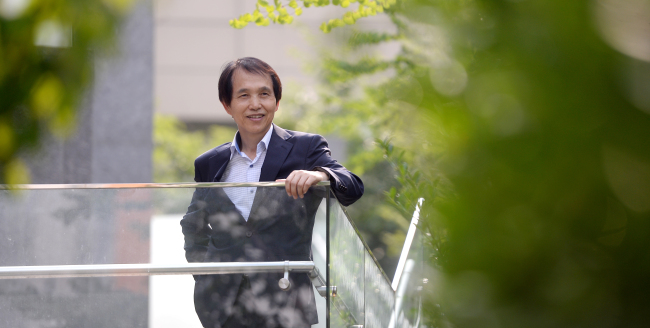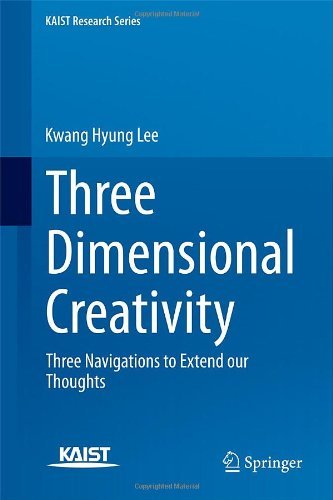Power of praise
Professor Lee shares his simple, but powerful tool for inspiring entrepreneurship: compliments
By Shin Ji-hyePublished : July 11, 2014 - 21:07
Professor Lee Kwang-hyung at KAIST is known in the university as an eccentric scientist. He puts his television upside down, ties his shoelaces in different colors and hangs picture frames at slanted angles.
But Lee’s reputation, however, mostly comes from his achievements in incubating start-up business leaders.
The companies that his students set up generate around 2.5 trillion won ($2.4 billion) in annual sales and employ 7,000 people. The nation’s largest game company Nexon, created by Kim Jung-ju in 1994, is one example.
His educational philosophy is simple. “I believe in the power of compliments,” the professor of bio and brain engineering and chief of the Graduate Program of Future Strategy told The Korea Herald.
His father’s praise pushed him to be a scientist. When Lee was a kid, his father told him to write about his future dream. Without much thinking and out of obligation, Lee wrote that he wanted to be a scientist. His father was so proud of Lee’s dream and kept showing the note to whoever visited his house.
“I was happy when he proudly showed my note to his guests. I was determined to be a scientist at the time and studied harder,” said Lee.
There was another moment compliments helped him overcome his difficulties. When Lee was working toward a Ph.D. in computer science at INSA (Institute National des Sciences Appliquees) in France, he struggled to catch up with his studies as his French was poor.
But Lee’s reputation, however, mostly comes from his achievements in incubating start-up business leaders.
The companies that his students set up generate around 2.5 trillion won ($2.4 billion) in annual sales and employ 7,000 people. The nation’s largest game company Nexon, created by Kim Jung-ju in 1994, is one example.
His educational philosophy is simple. “I believe in the power of compliments,” the professor of bio and brain engineering and chief of the Graduate Program of Future Strategy told The Korea Herald.
His father’s praise pushed him to be a scientist. When Lee was a kid, his father told him to write about his future dream. Without much thinking and out of obligation, Lee wrote that he wanted to be a scientist. His father was so proud of Lee’s dream and kept showing the note to whoever visited his house.
“I was happy when he proudly showed my note to his guests. I was determined to be a scientist at the time and studied harder,” said Lee.
There was another moment compliments helped him overcome his difficulties. When Lee was working toward a Ph.D. in computer science at INSA (Institute National des Sciences Appliquees) in France, he struggled to catch up with his studies as his French was poor.


“One day, I was at the staff room and I saw employees having a problem fixing a computer. When I helped them fix it, they were so amazed and called me a genius,” he said.
“Strangely, I did not want to show them my bad grades and I wanted to meet their expectations of me.” Literally, he studied day and night, seven days a week. Within six months, he became the top student in the class.
Incubating start-up business leaders
When he became a professor at one of the nation’s top universities, he said it was natural for him to try to harness the power of compliments in helping his students.
“Everyone has at least one thing they are good at. If you have an affection for people, you can find it,” he said.
Having built his reputation as an inspiring professor at the university, he is often asked by students to be their supervisor and he was willing to take an advisory role for them.
“From a lecturer’s perspective, they may not be good students ― who often turn in assignments late or who frequently skipped the class,’’ Lee said.
“But they stood ahead of other students in creativity.”
Lee recalled that Nexon’s founder and CEO Kim Jung-ju was not a good student by traditional standards.
“He came to class late and left early, and he was always playing games, instead of studying,” Lee said.
One day, Kim told his professor that he wanted to create a game company, which was a new business model in the early 1990s in South Korea. After Lee listened to his business proposal, he praised and encouraged Kim to pursue what he loved.
Kim has grown into a famous entrepreneur, heading the nation’s largest game company. Nexon’s annual sales stand at 1.6 trillion won ($1.5 billion).
Asked about the reason behind the lack of young entrepreneurs in Korea, he pointed out that Korean culture does not praise achievements, small or big.
“If students’ ideas are different from those of the majority, a teacher tends to scold them rather than praise them,” Lee said.
“However, I believe creativity comes from such differences.”
Localization of technology
His tendency to put little stress on social norms and traditions is reflected in his research style. As a well-known scientist himself, his research areas include bioinformatics and artificial intelligence.
“I prefer practical studies rather than theoretical ones. “Korea’s science academies tend to pay too much attention to the number of papers rather than their content or their impact on society,” he said.
Believing that what matters is content of study, not the form of it, the professor joined several projects aimed at localizing foreign technologies.
One of such technologies that he was involved in was the fuzzy elevator group control system. Until the mid-1990s, South Korea had no group control system for elevators, which enables the nearest elevator to come first when a user presses a button. He joined a project together with local automation company LSIS to localize the technology, and made it successful.
“It was rewarding, as the technology improved the efficiency of buildings and we no longer had to rely on Japanese technology,” he said.
He also joined a project to localize technology that made cans for soft drinks lighter, in cooperation with a local steel mill. His team successfully developed the technology to produce steel that was just 0.2 mm thick.
“With the technology, soft drinks cans became lighter, less costly and greener.”
What would be the ultimate life goal for a person who has so many achievements in his career and in his personal life as a father of two kids already?
“I want to be a person who is respected when I retire,” he said, explaining that when all of a tree’s leaves have fallen, people can see its true figure.
“You can say your life is successful when you are self-confident and continue to seek dream even after when you become powerless after retirement.”
By Shin Ji-hye (shinjh@heraldcorp.com)











![[Today’s K-pop] BTS pop-up event to come to Seoul](http://res.heraldm.com/phpwas/restmb_idxmake.php?idx=644&simg=/content/image/2024/04/17/20240417050734_0.jpg&u=)





![[KH Explains] Hyundai's full hybrid edge to pay off amid slow transition to pure EVs](http://res.heraldm.com/phpwas/restmb_idxmake.php?idx=652&simg=/content/image/2024/04/18/20240418050645_0.jpg&u=20240419100350)

